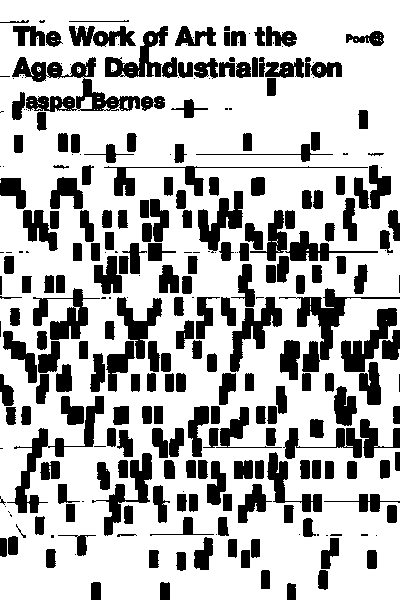

Introduction [Page 1]
I follow Moishe Postone in arguing that it is only because of capitalism’s drive to dominate, rationalize, standardize, and intensify labor, and in particular its drive to submit it to a common temporal measure under the pressure of intercapitalist competition (what Marx calls abstract labor time), that labor appears as an abstract entity at all. Because capitalism abstracts labor, in both senses of the word, it appears as a substantial entity, a category that is not merely ideal but real, a living, breathing abstraction. [Page 2]
The participatory thematic of the period runs as much through the happenings of Kaprow and Claes Oldenburg as through its near cousins in Fluxus, as well as Latin American neo-concretism, Viennese actionism, the experiments of the Situationist International in its early artistic phase, and numerous currents of 1960s art, inasmuch as the entire field saw a move away from the strict production of objects and toward performances, conceptual elaborations, installations, environments, and earthworks. [Page 11]
Much of this material trades on an older avant-garde politics that announces its opposition to the separation of art and life, intending to bring the technical means of art making to bear on life, and the social problems therein, with new force. [Page 11]
In particular, the techni- cal methods of the participatory arts of the period were quickly put to use in the newly theatrical political demonstrations of the period, perhaps most notably in the case of the Dutch Provos, where theatrical performances by large groups of participants were engineered to provoke violent overreaction by the police. [Page 11-12]
Lyric and the Service Sector: Frank O’Hara at Work [Page 37]
Hayakawa defines advertising as the “poeticizing of consumer goods” and is quick to note that, at a technical level, advertising and poetry are largely identical in the way that they use language. [Page 40]
As detailed in numerous historical treatments, beginning with Eve Cockcroft’s seminal article, “Abstract Expressionism: Weapon of the Cold War,” the International Program of the MoMA served as a proxy Ministry of Culture for the United States, overseeing tasks such as the selection of artists for the American Pavilion at the Venice Biennale that were handled directly by the state in other countries. [Page 57]
John Ashbery’s Free Indirect Labor [Page 64]
Hence, as Andrew Hoberek notes in his study of the white-collar middle class in postwar American fiction, workers like the speaker of “The Instruction Manual” tend to experience “mental labor [as] the site of both transcendence and disempowerment,” the former index- ing a past life of petit-bourgeois entrepreneurialism and the latter a future life of thoroughly proletarianized drudge work. [Page 66]
The Poetry of Feedback [Page 84]
This claim chimes with an equally important essay on conceptualism by Benjamin Buchloh, who argues that such projects were paralyzed by a form of critique that could only mimic that which it sought to negate, assuming from the start that the limits imposed by the commodity form were insuperable.[Page 112]
The Feminization of Speedup [Page 120]
All at once, Mayer is collaborating with her friend Jacques on his play, working on her boyfriend’s film, and at the same time documenting the experiences so that they can be repositioned inside her own project, Memory. In the passage quoted, for instance, one does not know whether the phone calls she makes are personal or business (or even if this is a tenable distinction). The same goes for the trip to the record store. Everything is brought into the circle of work: under the beach, the office.[Page 130]
Art, Work, and Endlessness in the 2000s [Page 149]
Though Degentesh’s poem uncharacteristically uses word substitution rather than a Google search query—for example, replacing milk with work, casual with coital—it nonetheless introduces terrain common to Flarf poems, playing up the opposition between public and private worlds, given here as a conflict between the bureaucratic protocols of office work and the demands of intimate life. [Page 158]